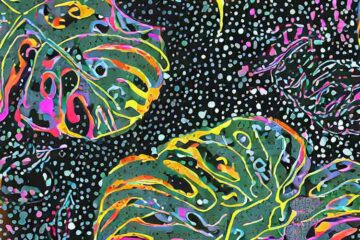You likely won’t find it surprising that it’s difficult to find, sift through, and analyze meaningful research related to perimenopause and menopause. I face this two-fold, as a perimenopausal human looking to consume the actual science, and as a founder of a healthtech startup looking to research to inform what I build.
I wanted to share some resources that have stuck with me of late.
- Commentary: “Missed period? The significance of period-tracking applications in a post-Roe America” by Bridget G. Kelly, Director of Research for Sexual and Reproductive Health and Rights, Population Institute, Washington, DC, USA, and Maniza Habib, Research Associate, Population Institute, Washington, DC, USA, appearing in SRHM | Sexual and Reproductive Health Matters
- Summary (generated by my custom “Aidvisory Board” GPT): “The article discusses the increased significance of period-tracking apps post-Roe v. Wade, focusing on privacy concerns and the potential for misuse of data in jurisdictions where abortion is illegal. It emphasizes the need for stronger data privacy protections and user control over personal health information, given the heightened risks associated with tracking reproductive health in a changing legal landscape. The key points revolve around safeguarding user data and enhancing legislative measures to protect individuals’ privacy and autonomy in accessing reproductive health services.”
- What I, the human, found most useful and surprising:
- 50 million women globally are estimated to use period tracking apps
- Read the T&C of anything you use closely b/c “some period-tracking apps even explicitly state that they may disclose users’ personal data at the request of law enforcement or government agencies.”
- FemTech apps are “outside of the scope of the Health Insurance Portability and Accountability Act.”
- Read more on that here at the U.S. Department of Health and Human Services’ “Protecting the Privacy and Security of Your Health Information When Using Your Personal Cell Phone or Tablet”
- Following the threads to reading about the My Body, My Data Act
- “An online survey of perimenopausal women to determine their attitudes and knowledge of the menopause” by Joyce C Harper, Samantha Phillips, Rina Biswakarma, Ephia Yasmin, Ertan Saridogan, Sheila Radhakrishnan, Melanie C Davies, and Vikram Talaulikar in Women’s Health
- Summary (generated by my custom “Aidvisory Board” GPT): “The article conducts an online survey to understand perimenopausal women’s attitudes and knowledge about menopause. It reveals that while a significant portion accept menopause, many dread it. Most women are uneducated about menopause symptoms, which include mood swings and brain fog. Over 90% were not taught about menopause in school, and many only seek information as symptoms arise. The study highlights a critical knowledge gap and the need for earlier education on menopause and better training for healthcare professionals to improve care for perimenopausal women.”
- The human break-down of surprises and interesting tidbits:
- Data shared in this were from 947 perimenopausal women
- “School was thought to be the best place for menopause education to start (83.6%).”
- Most common themes from free-text analysis included the knowledge gap, impact and onset of symptoms, the hidden phenomenon nature of perimenopause and different schools of thought regarding managing perimenopause symptoms
- “The most common symptoms were mood swings (68.9%, 620/900), brain fog (68.3%, 615/900), fatigue (66.8%, 601/900), irregular periods (66.6%, 599/900), and difficulty concentrating (63.9%, 575/900). Night sweats were reported by 58.6% (527/900) and hot flashes by 45.3% (408/900). Low sex drive was noted in 49.1% (442/900) and loss of sex desire in 30.0% (270/900).”
- 52.8% or 475/900 wanted to be taught about “the menopause” via apps
- “The women were angry that they had reached this point in their lives without any knowledge of how perimenopause would affect them.” This hits home hard and plays a large role in my starting Menopausey.
- “Many of the women felt that they were going mad, especially when their GPs had no idea what was wrong with them and only offered antidepressants or selective serotonin reuptake inhibitors’ (SSRI)”
- National Institute for Health and Care Excellence in the UK publishes guidelines for “Menopause: diagnosis and management” (last update was 2019, so keep that in mind)
- “A number of the women found it difficult to distinguish between the symptoms of perimenopause and the symptoms of their pre-existing conditions.” 🙋🏻♀️ When new symptoms arise, I deeply feel this point, too. I’ve found myself asking, “Do I need to go to the ER or is this just perimenopause?”
- “Many referred to men’s attitudes that exist today, as sexist social norms that continue to reinforce shameful stereotypes of the menopausal woman.” I am incredibly fortunate to have a super compassionate husband who is trying to learn alongside my experiences to better support me. That said, in conversation with someone who had “been in healthcare for 45 years” at a recent local startup event, he described menopause as a disease. YIKES. When I told firmly him not to call it that and that it was a life phase, he replaced disease with “condition.”
I hope some of these points validate your own experiences (they do mine).
Have a few minutes to chat or want to share your perimenopause journey anonymously, please take a look at this page.
Header image prompt in Adobe Firefly: “lots of nonsensical research piled up with a magnifying glass”



